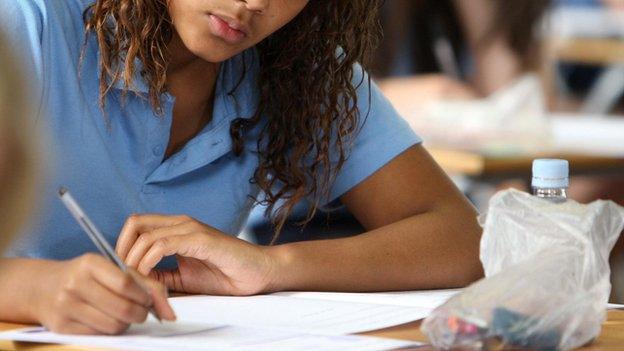Scottish government's 'ambitious' plan to tackle attainment gap questioned
- Published
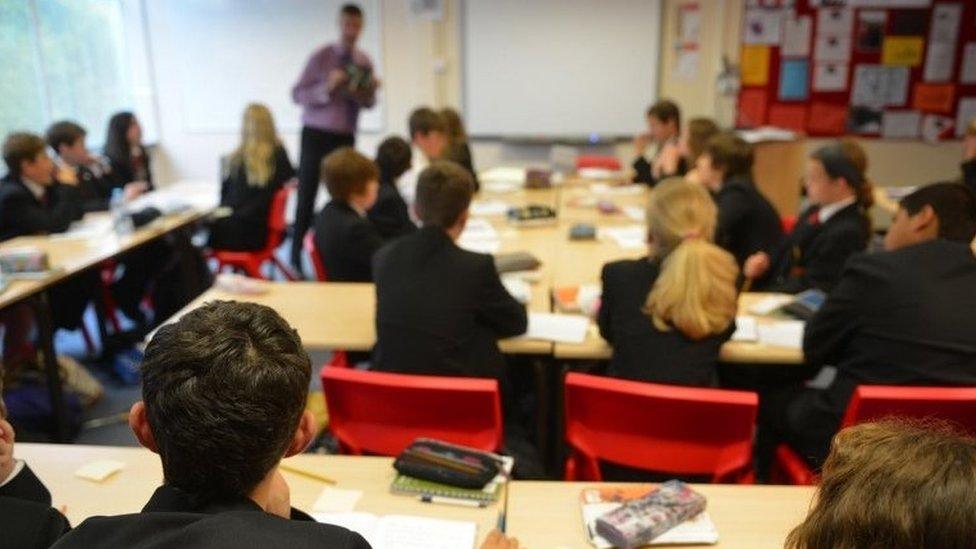
A report has questioned the Scottish government's ability to close the education attainment gap between rich and poor students.
The Commission on School Reform's challenge paper was concerned the plan was "exceptionally ambitious" and the timescale may be "unrealistic".
First Minister Nicola Sturgeon said improving attainment was a priority.
Her government has committed more than £100m to help schools in the most disadvantaged areas.
In September, it was announced that a new system of national testing was to be introduced in primary schools as part of her new programme for government.
The Commission For School Reform was established by think tank Reform Scotland and the Centre for Scottish Public Policy.
It said: "While it is good to be ambitious, there is no evidence to suggest that what is being attempted is feasible."
Chairman Keir Bloomer, a former director of education, said: "The Scottish government are right to focus on the twin objectives of raising overall attainment and simultaneously closing the gap between the attainment of disadvantaged children and those from more affluent backgrounds.
"However, it is time for government to adopt clear strategies to achieve those valid ambitions."

The commission outlined a number of challenges for the Scottish government and asked it to:
confirm the timescale over which it wishes to ensure that Scottish educational performance becomes once again amongst the world's best,
confirm beyond doubt that reducing the gap in attainment between higher and lower attaining students must only be achieved by raising performance at the bottom end, not compromising standards amongst the most able,
accept that if Scotland's education system is to become world leading within an acceptable timescale, transformational change not incremental advances will be required,
and review current plans to include supporting children who are living in poverty but attend schools that do not serve particularly deprived areas.
The report said: "Government has set out policy priorities with which few people will disagree. However, they are exceptionally ambitious. Timescales may well be unrealistic.
"The potential tension between raising standards for all and boosting the prospects of disadvantaged young people do not seem to have been fully explored.
"The commission is not persuaded that the strategies and support mechanisms that will be needed for success are yet in place.
"Attention does not seem to have been given to developing effective change mechanisms."
'Empower schools'
Mr Bloomer added: "In this, the first of a series of challenge papers, we want to prompt a new sense of urgency in government thinking.
"We can transform our educational performance through concerted action to close the gap in attainment, drive up professional standards in teaching and empower schools to respond successfully to local educational needs."
Scottish Labour said the gap between the richest and the rest in Scotland's classrooms must be closed. It also condemned the Scottish government's record on education saying it was "one to be ashamed of".
The Scottish Conservatives said the commission's report was a "stark message" from "well-respected educationalists" about the "serious issues" affecting Scottish schools.
The Liberal Democrats said "inadequate action" from the SNP government was "failing those children most in need".
A Scottish government spokeswoman said: "Our commitment to close the attainment gap between children from the most and least deprived communities is generating discussion all across Scotland about how we might achieve this absolute priority for the Scottish government.
"The contribution of ideas to this debate is welcome."
- Published1 September 2015
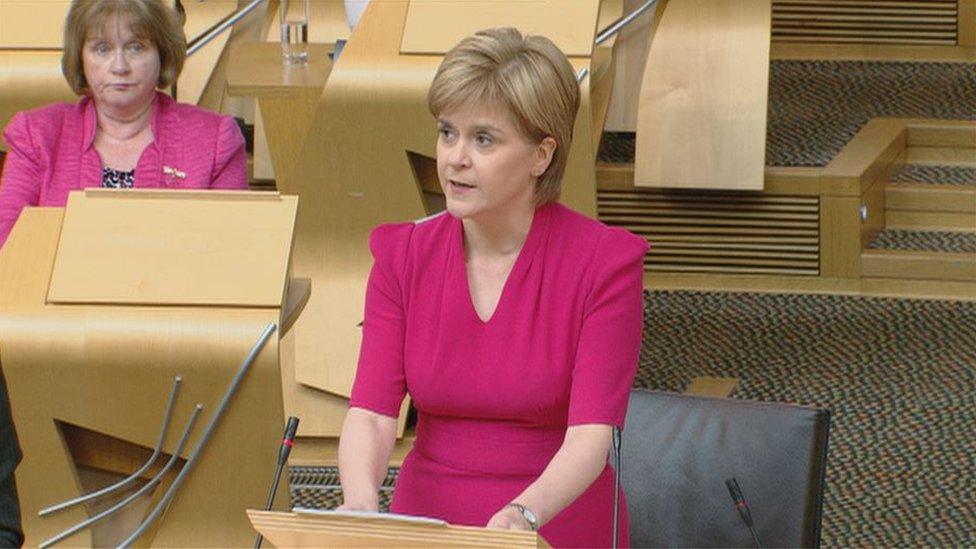
- Published2 September 2015
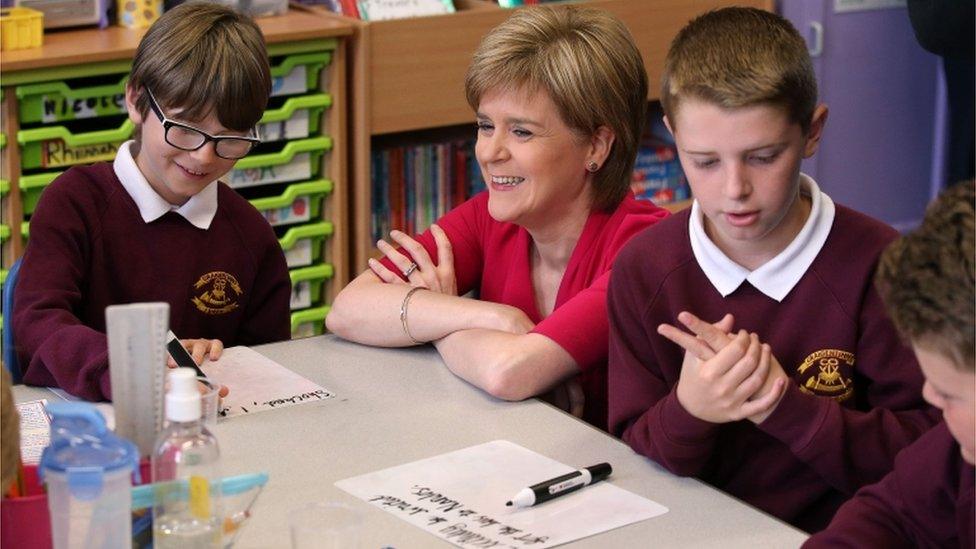
- Published29 June 2015

- Published29 April 2015
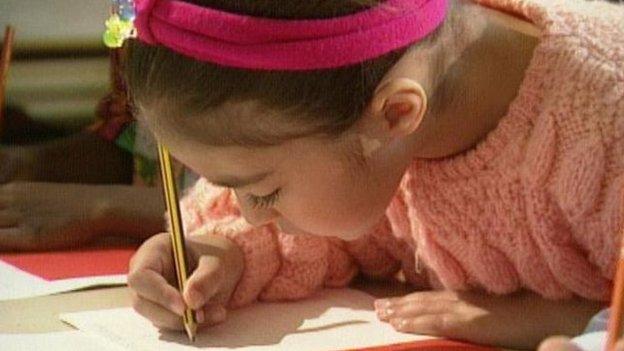
- Published24 March 2015

- Published9 February 2015
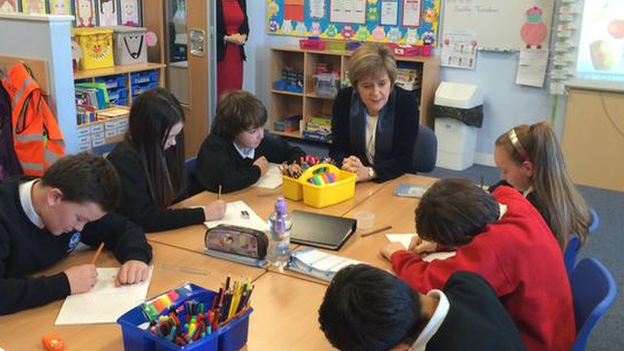
- Published12 January 2015
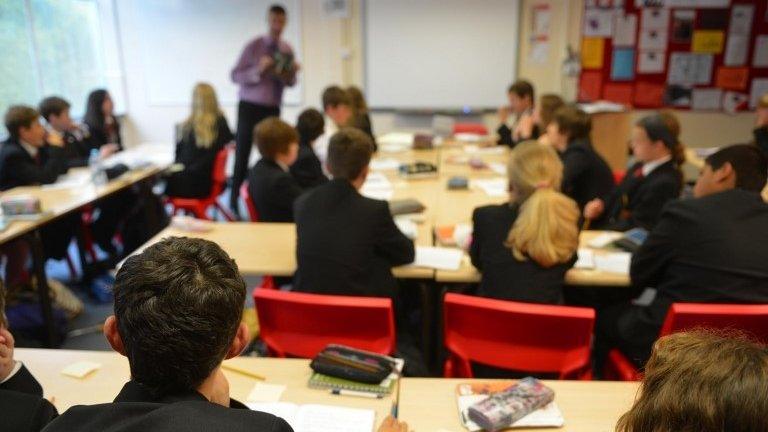
- Published4 March 2013
